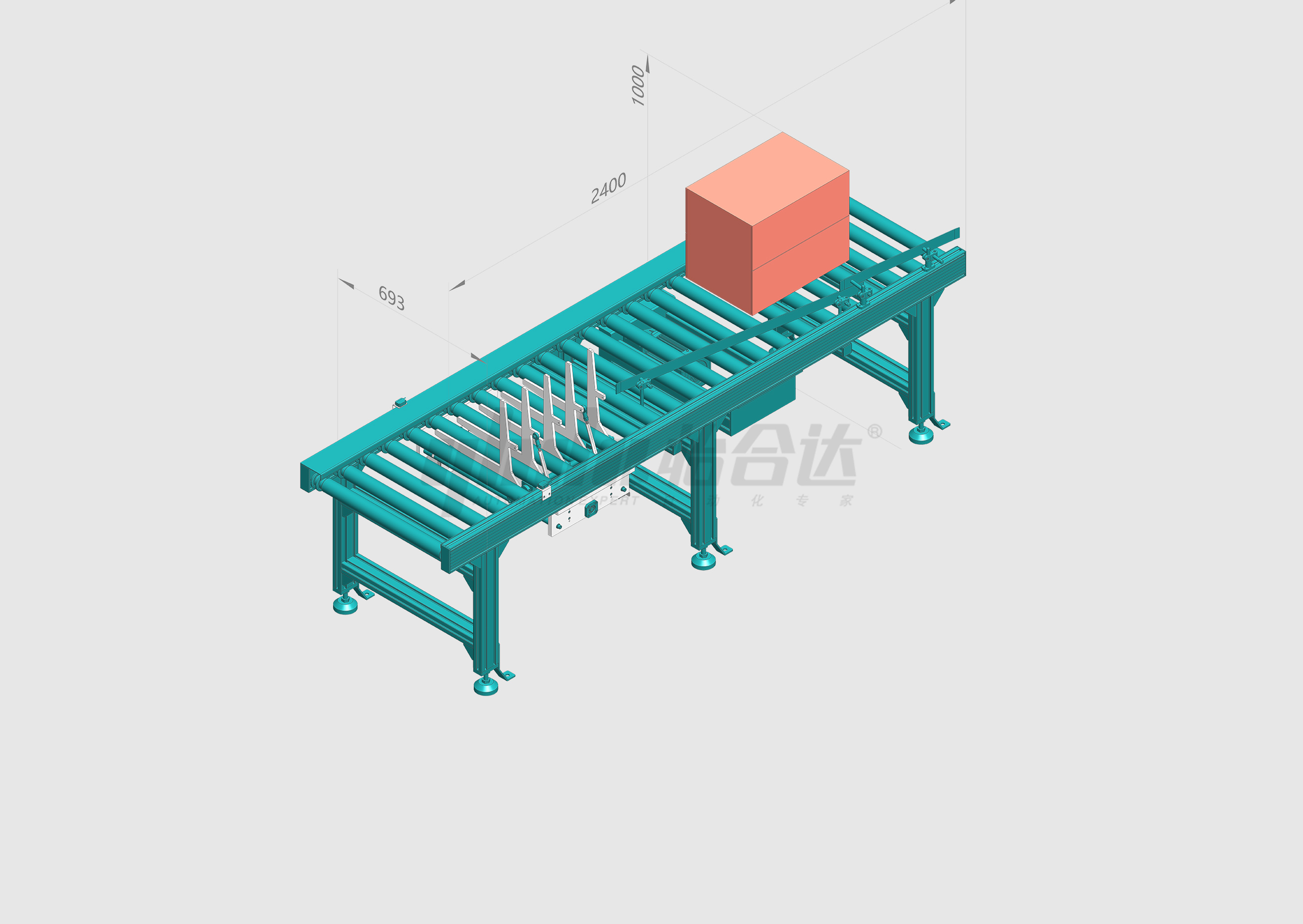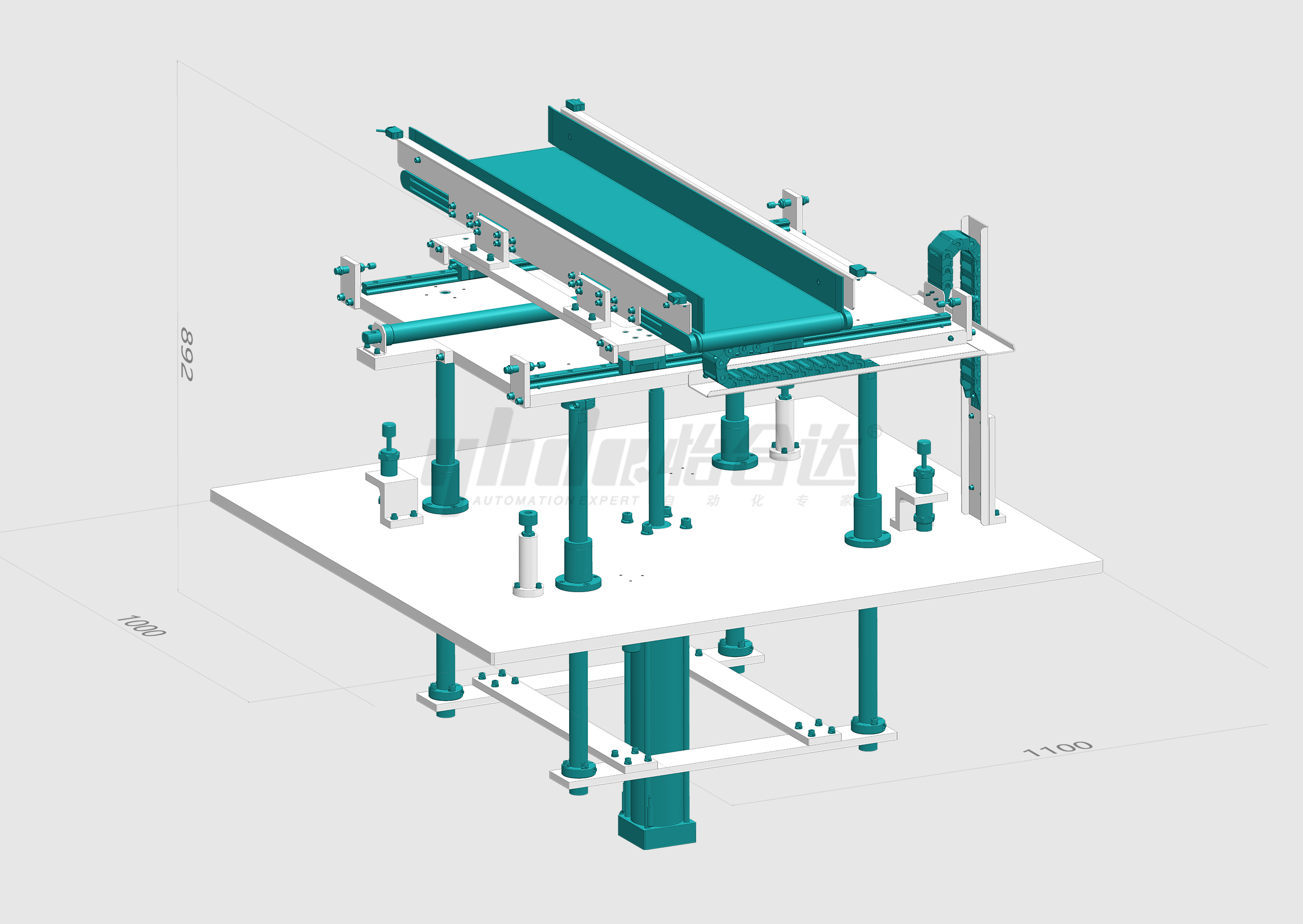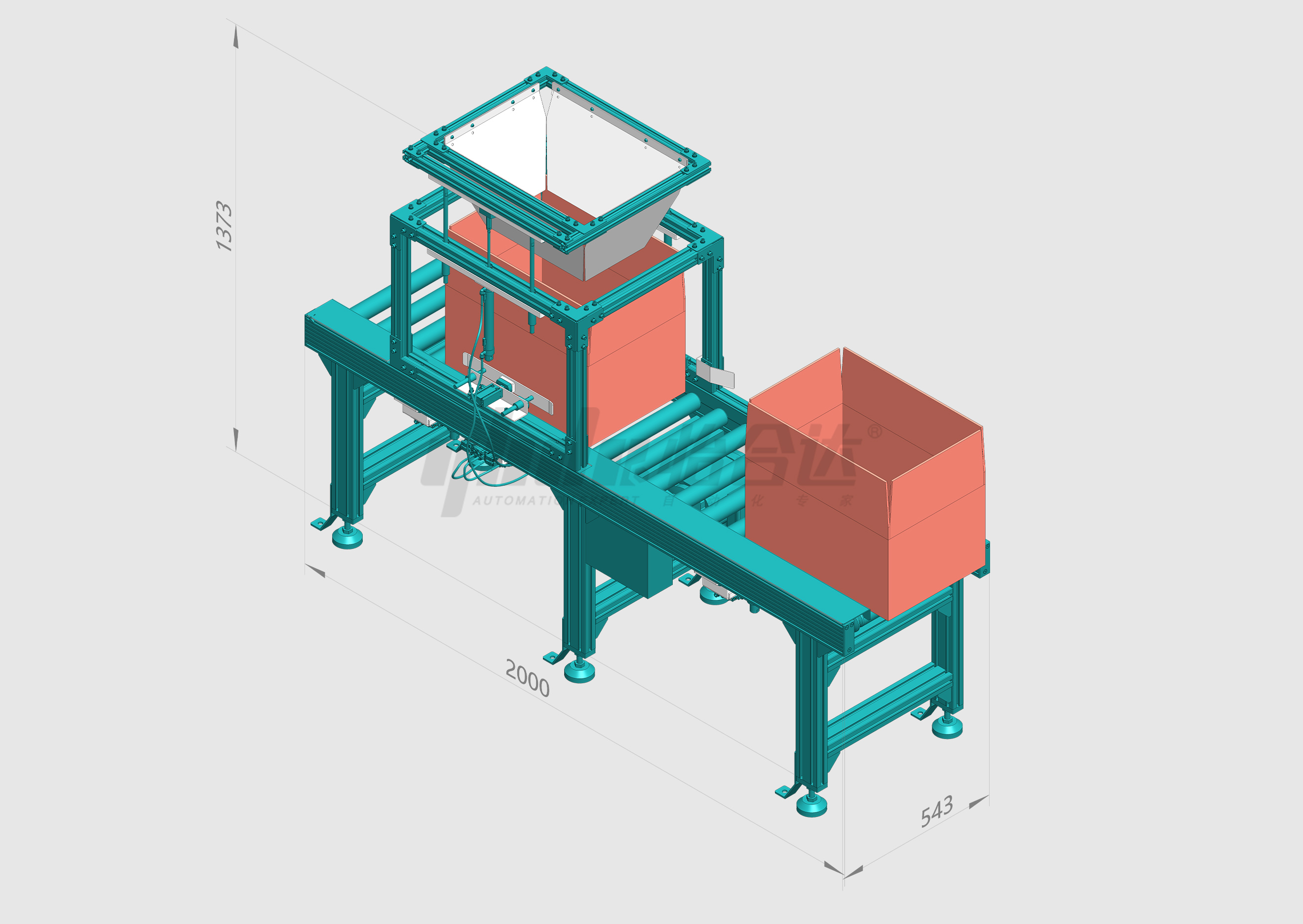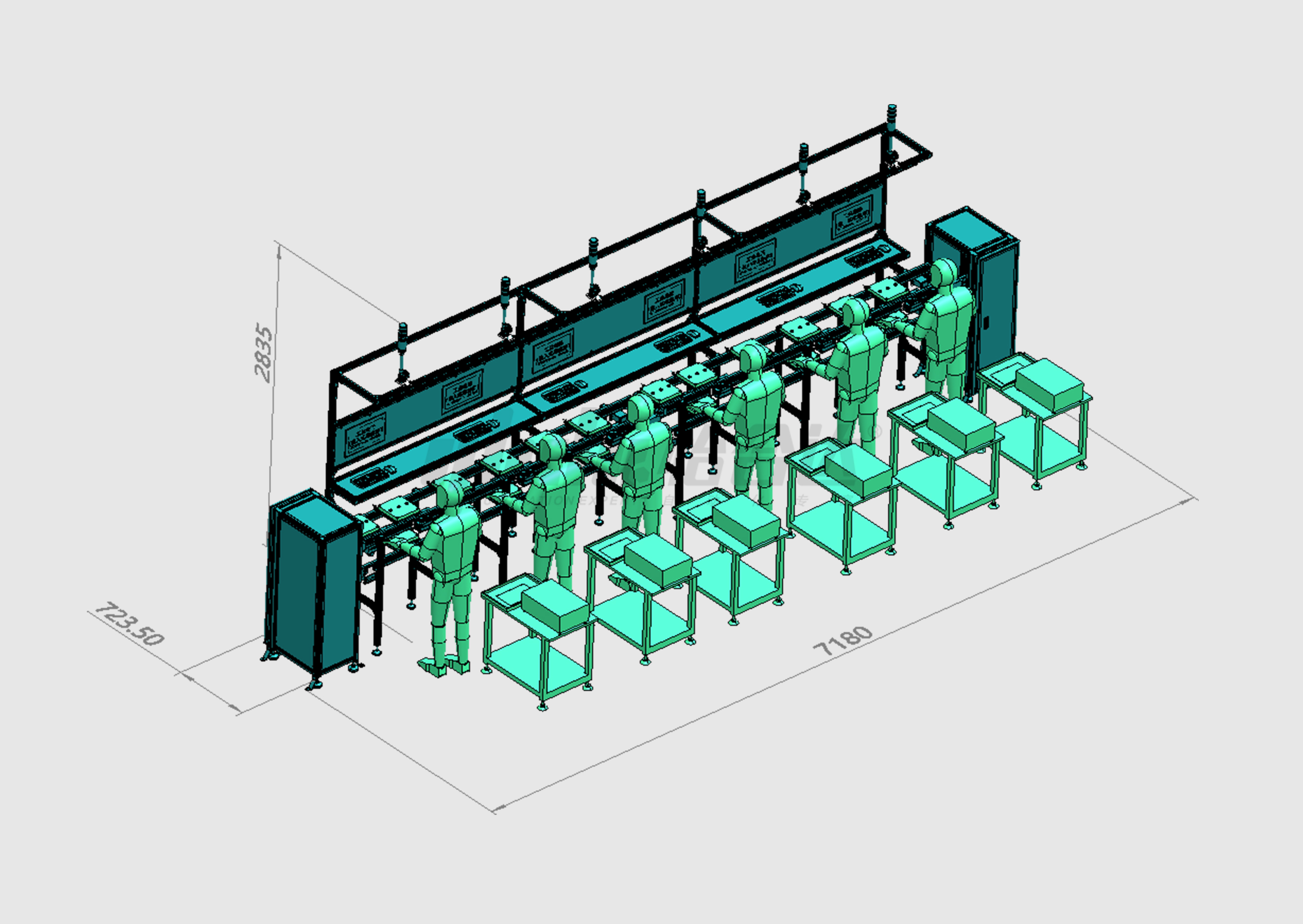
вщәПҙп°ёАэҺмОӘДъМṩ·бё»өД»ъРөҪб№№ЙијЖІОҝјЈ¬јӨ·ўёь¶аөДҙҙТвБйёРЈ¬ИГ№ӨЧчұдөГёьјУёЯР§ЈЎ
- °ёАэ„У®ӢСЭКҫ
- 3DДЈРН”ө“ю
- НкХыБгјюBOMұн



YHD-SL0058-·ЦуwКҪҷCјЬЈЁҷCПд&ҷCХЦ·ЦуwКҪЈ©ЈЁ20241213°жұҫЈ©
К№УГвщәПЯ_ЧФ Iјю(дXРНІДЈ¬лҠҝШјюЈ¬ҡвҝШјю)ҙоҪЁЙъіЙдXРНІДЙПҷCХЦЦчуwҪYҳӢәНҷCРөөхұЫҝШЦЖПдҪMјюЎўК№УГ·ҪНЁј°оУҪрәёҪУјюФOУӢПВҷCПдЦчуwҪYҳӢЈЁҷCПд&ҷCХЦ·ЦуwКҪЈ©ЎЈЯmУГУЪёч·NоҗРНөДЧФ„У»ҜФOӮдЎЈ
ҷCјЬЎўҷCПд
№ӨҳIҝтуwҪYҳӢІҝјю
НЁУГ
ЖдЛыРО о
53880

YHD-SL0057-Т»уwКҪҷCјЬЈЁҷCПд&ҷCХЦТ»уwКҪЈ©(20241204°жұҫ)
К№УГвщәПЯ_ЧФ Iјю(дXРНІДЈ¬лҠҝШјюЈ¬ҡвҝШјю)ҙоҪЁөДТ»уwКҪҷCјЬЦчуwҪYҳӢЈЁҷCПд&ҷCХЦТ»уwКҪЈ©ЎЈЯmУГУЪЦРРЎШ“ЭdЎўҹoёЯоlХр„УөНӣ_“фБҰөИ‘ӘУГҲцҫ°өДёч·NЧФ„У»ҜФOӮд
ҷCјЬЎўҷCПд
№ӨҳIҝтуwҪYҳӢІҝјю
НЁУГ
ЖдЛыРО о
42885

YHD-SL0129-РРРЗЭҶТЖФФҷCРөКЦ
ҷCРөКЦТЖФФ®bЖ·ұЈіЦ®bЖ·ЧЛ‘BІ»ЧғЈ¬ЯmУГУЪҳУЖ·ФЪТЖФФЈЁРэЮDТЖФФЈ©Я^іМЦРұЈіЦФӯУРөДҪЗ¶ИІ»Чғ
НЁУГРФёЯ
лҠЧУ№ӨҳI
¶ЁО»ЎўҠAҫo
№ӨҳIҝШЦЖЎўсRЯ_тҢ„У
ҫШРО№Өјю
627

YHD-SL0121-СbПд“ОПдҷCҳӢ
оУҪр“Ой_јҲПдЛДӮҖҪЗЈ¬·АЦ№ОпБПСbПд•rЕcјҲПдәПЙwҺЦЙж,ЯmУГУЪ°ьСbРРҳIЈ¬ЯmУГУЪҲAЦщРОәН·ҪРООпБПСbПд
МбёЯР§ВК
ОпБчӮ}ғҰҳI
ӮчЛНЎўЙППВБП
Пдуw№Өјю
Э”ЛНҫҖј°№ҰДЬҪMјю
2625

YHD-SL0022-БПұPЧФ„УЙППВБПҷCҳӢ
УГБПұP·ҪКҪҢҚ¬FЧФ„УЙППВБПЈ¬ҶОҙОғҰБП№Өјю3200ӮҖЈ¬ЯmУГУЪБПұPЧФ„УЙПБПЎўБПұPЧФ„УПВБП‘ӘУГҲцҫ°ЎЈ
ӮчЛНЎўЙППВБП
ЦұҫҖЯ\„УБгјю
лҠЧУ№ӨҳI
НРұPоҗ
Э”ЛНҫҖј°№ҰДЬҪMјю
МбёЯР§ВК
77127

YHD-SL0126-ГЬ·вИҰЙПБПҷCҳӢ
ГЬ·вИҰЧФ„У·ЦБПЎўЙПБП,ЯmУГУЪГЬ·вИҰСbЕдҲцҫ°
№ӨҳIҝШЦЖЎўсRЯ_тҢ„У
№ӨРтЗР“Q
НЁУГ
ЭdҫЯоҗ
1593

YHD-SL0128-90¶И·ӯПдҷCҳӢ
јҲПдФӯөШ90Ўг·ӯЮDЈ¬ЯmУГУЪРиТӘјҲПд90Ўг·ӯЮDӮИГжЈЁ·ӯЮDЗ°өДӮИГжЈ©іҜЙПҲцәП
МбёЯР§ВК
Пдуw№Өјю
ОпБчӮ}ғҰҳI
ӮчЛНЎўЙППВБП
Э”ЛНҫҖј°№ҰДЬҪMјю
931

YHD-SL0122-ҷMТЖЙэҪөЭ”ЛНҷCҳӢ
ЖӨҺ§Э”ЛНҷCҫЯӮдҷMТЖәНЙэҪө№ҰДЬЈ¬ҢҚ¬FҳУЖ·РиТӘФЪІ»Н¬ёЯ¶ИТФј°І»ФЪТ»—lЦұҫҖЙПөДЖӨҺ§Э”ЛНҷCЦ®йgӮчЛНөД№ҰДЬЈ¬ЯmУГУЪКіЖ·Ј¬бtЛҺЈ¬ИХ»ҜөИРРҳI
МбёЯР§ВК
ОпБчӮ}ғҰҳI
ӮчЛНЎўЙППВБП
Пдуw№Өјю
Э”ЛНҫҖј°№ҰДЬҪMјю
3426

YHD-SL0107-пLЬҮ·ӯЮDҷCҳӢ
НЁЯ^пLЬҮ·ӯЮDҷCҳӢҢўҳУЖ··ӯГжЎЈУГУЪҳУЖ·РиТӘ·ӯГжПВБП»тХЯҳУЖ·РиТӘғЙГжјУ№ӨҲцәПЎЈҙЛҷCҳӢТІҝЙЖрөҪҫҸҙжЧчУГЎЈ
МбёЯР§ВК
лҠЧУ№ӨҳI
·ӯЮDЎўРэЮD
ұЎ°е о
Э”ЛНҫҖј°№ҰДЬҪMјю
5409

YHD-SL0058-·ЦуwКҪҷCјЬЈЁҷCПд&ҷCХЦ·ЦуwКҪЈ©ЈЁ20241213°жұҫЈ©
К№УГвщәПЯ_ЧФ Iјю(дXРНІДЈ¬лҠҝШјюЈ¬ҡвҝШјю)ҙоҪЁЙъіЙдXРНІДЙПҷCХЦЦчуwҪYҳӢәНҷCРөөхұЫҝШЦЖПдҪMјюЎўК№УГ·ҪНЁј°оУҪрәёҪУјюФOУӢПВҷCПдЦчуwҪYҳӢЈЁҷCПд&ҷCХЦ·ЦуwКҪЈ©ЎЈЯmУГУЪёч·NоҗРНөДЧФ„У»ҜФOӮдЎЈ
ҷCјЬЎўҷCПд
№ӨҳIҝтуwҪYҳӢІҝјю
НЁУГ
ЖдЛыРО о
53880

YHD-SL0057-Т»уwКҪҷCјЬЈЁҷCПд&ҷCХЦТ»уwКҪЈ©(20241204°жұҫ)
К№УГвщәПЯ_ЧФ Iјю(дXРНІДЈ¬лҠҝШјюЈ¬ҡвҝШјю)ҙоҪЁөДТ»уwКҪҷCјЬЦчуwҪYҳӢЈЁҷCПд&ҷCХЦТ»уwКҪЈ©ЎЈЯmУГУЪЦРРЎШ“ЭdЎўҹoёЯоlХр„УөНӣ_“фБҰөИ‘ӘУГҲцҫ°өДёч·NЧФ„У»ҜФOӮд
ҷCјЬЎўҷCПд
№ӨҳIҝтуwҪYҳӢІҝјю
НЁУГ
ЖдЛыРО о
42885

YHD-SL0129-РРРЗЭҶТЖФФҷCРөКЦ
ҷCРөКЦТЖФФ®bЖ·ұЈіЦ®bЖ·ЧЛ‘BІ»ЧғЈ¬ЯmУГУЪҳУЖ·ФЪТЖФФЈЁРэЮDТЖФФЈ©Я^іМЦРұЈіЦФӯУРөДҪЗ¶ИІ»Чғ
НЁУГРФёЯ
лҠЧУ№ӨҳI
¶ЁО»ЎўҠAҫo
№ӨҳIҝШЦЖЎўсRЯ_тҢ„У
ҫШРО№Өјю
627

YHD-SL0121-СbПд“ОПдҷCҳӢ
оУҪр“Ой_јҲПдЛДӮҖҪЗЈ¬·АЦ№ОпБПСbПд•rЕcјҲПдәПЙwҺЦЙж,ЯmУГУЪ°ьСbРРҳIЈ¬ЯmУГУЪҲAЦщРОәН·ҪРООпБПСbПд
МбёЯР§ВК
ОпБчӮ}ғҰҳI
ӮчЛНЎўЙППВБП
Пдуw№Өјю
Э”ЛНҫҖј°№ҰДЬҪMјю
2625

YHD-SL0022-БПұPЧФ„УЙППВБПҷCҳӢ
УГБПұP·ҪКҪҢҚ¬FЧФ„УЙППВБПЈ¬ҶОҙОғҰБП№Өјю3200ӮҖЈ¬ЯmУГУЪБПұPЧФ„УЙПБПЎўБПұPЧФ„УПВБП‘ӘУГҲцҫ°ЎЈ
ӮчЛНЎўЙППВБП
ЦұҫҖЯ\„УБгјю
лҠЧУ№ӨҳI
НРұPоҗ
Э”ЛНҫҖј°№ҰДЬҪMјю
МбёЯР§ВК
77127

YHD-SL0126-ГЬ·вИҰЙПБПҷCҳӢ
ГЬ·вИҰЧФ„У·ЦБПЎўЙПБП,ЯmУГУЪГЬ·вИҰСbЕдҲцҫ°
№ӨҳIҝШЦЖЎўсRЯ_тҢ„У
№ӨРтЗР“Q
НЁУГ
ЭdҫЯоҗ
1593

YHD-SL0128-90¶И·ӯПдҷCҳӢ
јҲПдФӯөШ90Ўг·ӯЮDЈ¬ЯmУГУЪРиТӘјҲПд90Ўг·ӯЮDӮИГжЈЁ·ӯЮDЗ°өДӮИГжЈ©іҜЙПҲцәП
МбёЯР§ВК
Пдуw№Өјю
ОпБчӮ}ғҰҳI
ӮчЛНЎўЙППВБП
Э”ЛНҫҖј°№ҰДЬҪMјю
931

YHD-SL0122-ҷMТЖЙэҪөЭ”ЛНҷCҳӢ
ЖӨҺ§Э”ЛНҷCҫЯӮдҷMТЖәНЙэҪө№ҰДЬЈ¬ҢҚ¬FҳУЖ·РиТӘФЪІ»Н¬ёЯ¶ИТФј°І»ФЪТ»—lЦұҫҖЙПөДЖӨҺ§Э”ЛНҷCЦ®йgӮчЛНөД№ҰДЬЈ¬ЯmУГУЪКіЖ·Ј¬бtЛҺЈ¬ИХ»ҜөИРРҳI
МбёЯР§ВК
ОпБчӮ}ғҰҳI
ӮчЛНЎўЙППВБП
Пдуw№Өјю
Э”ЛНҫҖј°№ҰДЬҪMјю
3426

YHD-SL0107-пLЬҮ·ӯЮDҷCҳӢ
НЁЯ^пLЬҮ·ӯЮDҷCҳӢҢўҳУЖ··ӯГжЎЈУГУЪҳУЖ·РиТӘ·ӯГжПВБП»тХЯҳУЖ·РиТӘғЙГжјУ№ӨҲцәПЎЈҙЛҷCҳӢТІҝЙЖрөҪҫҸҙжЧчУГЎЈ
МбёЯР§ВК
лҠЧУ№ӨҳI
·ӯЮDЎўРэЮD
ұЎ°е о
Э”ЛНҫҖј°№ҰДЬҪMјю
5409

YHD-SL0120-СbПдҢ§ПтҷCҳӢ
Ң§ПтЬӣДӨғAҪЗЙмЯMјҲПдЈ¬·АЦ№ОпБПСbПд•rЕcјҲПдәПЙwҺЦЙжЈ¬ОпБч°ьСbРРҳIЈ¬ЯmУГУЪҲAЦщРООпБПСbПд
МбёЯР§ВК
ОпБчӮ}ғҰҳI
ӮчЛНЎўЙППВБП
Пдуw№Өјю
Э”ЛНҫҖј°№ҰДЬҪMјю
2418

YHD-SL0123-Ҹ—»ЙЙПБПҷCҳӢ
Ҹ—»ЙЧФ„У·ЦБПЎўЙПБПЈ¬ЯmУГУЪҸ—»Й·ЦБПҲцҫ°
№ӨҳIҝШЦЖЎўсRЯ_тҢ„У
№ӨРтЗР“Q
НЁУГ
ЭdҫЯоҗ
3089

YHD-SL0125-ёЯ¶И·ЦоҗҷCҳӢ
ПдКҪ°ь№ьРиТӘ°ҙХХПдЧУөДёЯ¶ИіЯҙзЯMРР·ЦоҗЯ\Э”•rЈ¬ҙЛҷCҳӢҝЙТФҢў°ь№ь°ҙХХПдЧУөДёЯ¶ИіЯҙзЯMРР·ЦоҗЈ¬И»ббНЁЯ^ёчЧФөДЭ”ЛНҷCӮчЛНөҪЦё¶ЁөДО»ЦГЈ¬ЦчТӘ‘ӘУГФЪОпБчРРҳI·ЦоҗЭ”ЛНҫҖЈ¬ҢўёЯ¶ИІ»Н¬өД°ь№ь·Цоҗ
МбёЯР§ВК
ОпБчӮ}ғҰҳI
ӮчЛНЎўЙППВБП
Пдуw№Өјю
Э”ЛНҫҖј°№ҰДЬҪMјю
1633

YHD-SL0103-ЧФ„УЩNҳЛҷCҳӢ
НЁЯ^ҷCҳӢЧФ„У„ғлxҳЛәһЈ¬ФЪЖҪГжОпБПЙПЯMРРЧјҙ_ЩNҳЛЈ¬К№®bЖ·ҳЛЧRёьГАУ^
Ҫӣө乫КҪоҗ
НЁУГ
ЩNҳЛЎўҙтҳЛ
ҫШРО№Өјю
ҷCРөҳЛЧјБгјю
8870

YHD-SL0119-јӨ№вЗРёоҷCҳӢ
АыУГјӨ№вЗРёојјРgЈ¬ҢҰІЈБ§Тәҫ§п@КҫЖБЛДЦЬҲAҪЗЗРёоәНЖдЛь®җРОҝЧЗРёоЈ¬3CРРҳIІЈБ§јӨ№вЗРёоЎЈЯxУГЖӨГлјӨ№вЖчЈ¬ІЁйL1064nmЈ¬ҢҰІЈБ§ЛДӮҖҪЗө№ҲAҪЗЈ¬Л®өОҝЧЗРёоЎЈПаҷCҢҰ®bЖ·MarkЕДХХббУӢЛг®bЖ·X/YЭSО»ЦГЈ¬ЗРёоо^XЭSәНЭdМЁYЭSСaғ”®bЖ·О»ЦГЖ«ІоббЧцІеСaЯ\„УҢҰ®bЖ·ҲA»ЎҪЗЧцҫ«ҙ_ЗРёо
Ҫӣө乫КҪоҗ
лҠЧУ№ӨҳI
ЩNҳЛЎўҙтҳЛ
ӮчёРЖчЎў№ӨҳIТ•УX
ұЎ°е о
4308

YHD-SL0115-Э”ЛНҫҖ90Ўгҡв„УЮDПтҷC
ҙЛ°ёАэУГУЪХ№КҫЭ”ЛНҫҖЦРНРұP90ЎгЮDПтөДТ»·NҝЙРРРФ·Ҫ°ёЈ¬ІЙУГҡвёЧтҢ„УЈ¬Ц»ДЬЧцТ»ӮҖО»ЦГөДЗР“QЈ¬ө«ҪYҳӢәҶҶОҢҚ¬FіЙұҫПаҢҰЭ^өНЈ¬ЙППВғЙҢУЭ”ЛНҫҖЈ¬РиТӘ90ЎгЮDПтЭ”ЛНЈ¬ЙППВҢУӘҡБўЯ\РРЎЈ
НЁУГ
Э”ЛНҫҖј°№ҰДЬҪMјю
№ӨҳIҝШЦЖЎўсRЯ_тҢ„У
ТЧУЪЗР“Q№ӨРт
ҷCРөҳЛЧјБгјю
2619

YHD-SL0116-°лЧФ„УСӯӯhЙэҪөҷCҳӢ
К№Э”ЛН№ӨјюөДБПұPНЁЯ^СӯӯhЙэҪөҷCҳӢҝЙТФСӯӯhЭ”ЛН№ӨјюЈ¬ңpЙЩИЛ№Ө°бЯ\Ј¬ЯmУГУЪБПұPЦОҫЯФЪБчЛ®ҫҖөДСӯӯhЯ\Э”
НЁУГРФёЯ
ҝЙХ{ҫалx
ЭdҫЯоҗ
№ӨҳIҝтуwҪYҳӢІҝјю
3901

YHD-SL0117-јӨ№вҙтҙaҷCҳӢ
АыУГјӨ№вјјРgЈ¬ФЪІЈБ§Тәҫ§п@КҫЖБЙПҙтУЎ¶юҫSҙaЈ¬л[РОҙaЈ¬MarkәНЖдЛьёч·NҲDРОҙaЈ¬ЯmУГУЪ3CРРҳIІЈБ§јӨ№вҙтҙaЎЈЯxУГј{ГлјӨ№вЖчЈ¬ІЁйL532nmЈ¬ФЪТәҫ§п@КҫЖБұнГжҙтУЎ¶юҫSҙaЈ¬ғИҢУҙтУЎл[РОҙaЎЈТФј°ЖдЛьёч·NҲDРОөДГчҙaәН°өҙaҙтУЎЎЈҙтУЎббНЁЯ^Т•УXПаҷCҢҰҙaЯMРРЧxИЎРЈтһКЗ·сәПёс
ёЯҫ«¶И
лҠЧУ№ӨҳI
јУ№ӨЎўҪMСb
ұЎ°е о
ӮчёРЖчЎў№ӨҳIТ•УX
2809

YHD-SL0118-Т»іц¶а·ЦБПҷCҳӢ
НЁЯ^Н¬ІҪҺ§лSРРҠAҫЯҝЙТФҢҚ¬FФЪ№қКЎҝХйgөДЗйӣrПВ·ЦБП¶аӮҖҳУЖ·,ЯmУГУЪ¶а№ӨО»ҪMСb&°бЛНЙъ®bҲцҫ°
МбёЯР§ВК
НЁУГ
¶ЁО»ЎўҠAҫo
ЭdҫЯоҗ
Э”ЛНҫҖј°№ҰДЬҪMјю
6172

YHD-SL0091-ҠAіЦ·ӯЮDүәәПҷCҳӢ
УГУЪҪMСbҫҖҳУЖ·јюөД°бЛНЈ¬ҠAіЦЈ¬·ӯЮDЈ¬үәәПҪMСb
НЁУГРФёЯ
·ӯЮDЎўРэЮD
ҲAЦщ о
ТЧУЪЗР“Q№ӨРт
НЁУГ
јУ№ӨЎўҪMСb
ЦұҫҖЯ\„УБгјю
17535

YHD-SL0120-СbПдҢ§ПтҷCҳӢ
Ң§ПтЬӣДӨғAҪЗЙмЯMјҲПдЈ¬·АЦ№ОпБПСbПд•rЕcјҲПдәПЙwҺЦЙжЈ¬ОпБч°ьСbРРҳIЈ¬ЯmУГУЪҲAЦщРООпБПСbПд
МбёЯР§ВК
ОпБчӮ}ғҰҳI
ӮчЛНЎўЙППВБП
Пдуw№Өјю
Э”ЛНҫҖј°№ҰДЬҪMјю
2418

YHD-SL0123-Ҹ—»ЙЙПБПҷCҳӢ
Ҹ—»ЙЧФ„У·ЦБПЎўЙПБПЈ¬ЯmУГУЪҸ—»Й·ЦБПҲцҫ°
№ӨҳIҝШЦЖЎўсRЯ_тҢ„У
№ӨРтЗР“Q
НЁУГ
ЭdҫЯоҗ
3089

YHD-SL0125-ёЯ¶И·ЦоҗҷCҳӢ
ПдКҪ°ь№ьРиТӘ°ҙХХПдЧУөДёЯ¶ИіЯҙзЯMРР·ЦоҗЯ\Э”•rЈ¬ҙЛҷCҳӢҝЙТФҢў°ь№ь°ҙХХПдЧУөДёЯ¶ИіЯҙзЯMРР·ЦоҗЈ¬И»ббНЁЯ^ёчЧФөДЭ”ЛНҷCӮчЛНөҪЦё¶ЁөДО»ЦГЈ¬ЦчТӘ‘ӘУГФЪОпБчРРҳI·ЦоҗЭ”ЛНҫҖЈ¬ҢўёЯ¶ИІ»Н¬өД°ь№ь·Цоҗ
МбёЯР§ВК
ОпБчӮ}ғҰҳI
ӮчЛНЎўЙППВБП
Пдуw№Өјю
Э”ЛНҫҖј°№ҰДЬҪMјю
1633

YHD-SL0103-ЧФ„УЩNҳЛҷCҳӢ
НЁЯ^ҷCҳӢЧФ„У„ғлxҳЛәһЈ¬ФЪЖҪГжОпБПЙПЯMРРЧјҙ_ЩNҳЛЈ¬К№®bЖ·ҳЛЧRёьГАУ^
Ҫӣө乫КҪоҗ
НЁУГ
ЩNҳЛЎўҙтҳЛ
ҫШРО№Өјю
ҷCРөҳЛЧјБгјю
8870

YHD-SL0119-јӨ№вЗРёоҷCҳӢ
АыУГјӨ№вЗРёојјРgЈ¬ҢҰІЈБ§Тәҫ§п@КҫЖБЛДЦЬҲAҪЗЗРёоәНЖдЛь®җРОҝЧЗРёоЈ¬3CРРҳIІЈБ§јӨ№вЗРёоЎЈЯxУГЖӨГлјӨ№вЖчЈ¬ІЁйL1064nmЈ¬ҢҰІЈБ§ЛДӮҖҪЗө№ҲAҪЗЈ¬Л®өОҝЧЗРёоЎЈПаҷCҢҰ®bЖ·MarkЕДХХббУӢЛг®bЖ·X/YЭSО»ЦГЈ¬ЗРёоо^XЭSәНЭdМЁYЭSСaғ”®bЖ·О»ЦГЖ«ІоббЧцІеСaЯ\„УҢҰ®bЖ·ҲA»ЎҪЗЧцҫ«ҙ_ЗРёо
Ҫӣө乫КҪоҗ
лҠЧУ№ӨҳI
ЩNҳЛЎўҙтҳЛ
ӮчёРЖчЎў№ӨҳIТ•УX
ұЎ°е о
4308

YHD-SL0115-Э”ЛНҫҖ90Ўгҡв„УЮDПтҷC
ҙЛ°ёАэУГУЪХ№КҫЭ”ЛНҫҖЦРНРұP90ЎгЮDПтөДТ»·NҝЙРРРФ·Ҫ°ёЈ¬ІЙУГҡвёЧтҢ„УЈ¬Ц»ДЬЧцТ»ӮҖО»ЦГөДЗР“QЈ¬ө«ҪYҳӢәҶҶОҢҚ¬FіЙұҫПаҢҰЭ^өНЈ¬ЙППВғЙҢУЭ”ЛНҫҖЈ¬РиТӘ90ЎгЮDПтЭ”ЛНЈ¬ЙППВҢУӘҡБўЯ\РРЎЈ
НЁУГ
Э”ЛНҫҖј°№ҰДЬҪMјю
№ӨҳIҝШЦЖЎўсRЯ_тҢ„У
ТЧУЪЗР“Q№ӨРт
ҷCРөҳЛЧјБгјю
2619

YHD-SL0116-°лЧФ„УСӯӯhЙэҪөҷCҳӢ
К№Э”ЛН№ӨјюөДБПұPНЁЯ^СӯӯhЙэҪөҷCҳӢҝЙТФСӯӯhЭ”ЛН№ӨјюЈ¬ңpЙЩИЛ№Ө°бЯ\Ј¬ЯmУГУЪБПұPЦОҫЯФЪБчЛ®ҫҖөДСӯӯhЯ\Э”
НЁУГРФёЯ
ҝЙХ{ҫалx
ЭdҫЯоҗ
№ӨҳIҝтуwҪYҳӢІҝјю
3901

YHD-SL0117-јӨ№вҙтҙaҷCҳӢ
АыУГјӨ№вјјРgЈ¬ФЪІЈБ§Тәҫ§п@КҫЖБЙПҙтУЎ¶юҫSҙaЈ¬л[РОҙaЈ¬MarkәНЖдЛьёч·NҲDРОҙaЈ¬ЯmУГУЪ3CРРҳIІЈБ§јӨ№вҙтҙaЎЈЯxУГј{ГлјӨ№вЖчЈ¬ІЁйL532nmЈ¬ФЪТәҫ§п@КҫЖБұнГжҙтУЎ¶юҫSҙaЈ¬ғИҢУҙтУЎл[РОҙaЎЈТФј°ЖдЛьёч·NҲDРОөДГчҙaәН°өҙaҙтУЎЎЈҙтУЎббНЁЯ^Т•УXПаҷCҢҰҙaЯMРРЧxИЎРЈтһКЗ·сәПёс
ёЯҫ«¶И
лҠЧУ№ӨҳI
јУ№ӨЎўҪMСb
ұЎ°е о
ӮчёРЖчЎў№ӨҳIТ•УX
2809

YHD-SL0118-Т»іц¶а·ЦБПҷCҳӢ
НЁЯ^Н¬ІҪҺ§лSРРҠAҫЯҝЙТФҢҚ¬FФЪ№қКЎҝХйgөДЗйӣrПВ·ЦБП¶аӮҖҳУЖ·,ЯmУГУЪ¶а№ӨО»ҪMСb&°бЛНЙъ®bҲцҫ°
МбёЯР§ВК
НЁУГ
¶ЁО»ЎўҠAҫo
ЭdҫЯоҗ
Э”ЛНҫҖј°№ҰДЬҪMјю
6172

YHD-SL0091-ҠAіЦ·ӯЮDүәәПҷCҳӢ
УГУЪҪMСbҫҖҳУЖ·јюөД°бЛНЈ¬ҠAіЦЈ¬·ӯЮDЈ¬үәәПҪMСb
НЁУГРФёЯ
·ӯЮDЎўРэЮD
ҲAЦщ о
ТЧУЪЗР“Q№ӨРт
НЁУГ
јУ№ӨЎўҪMСb
ЦұҫҖЯ\„УБгјю
17535




